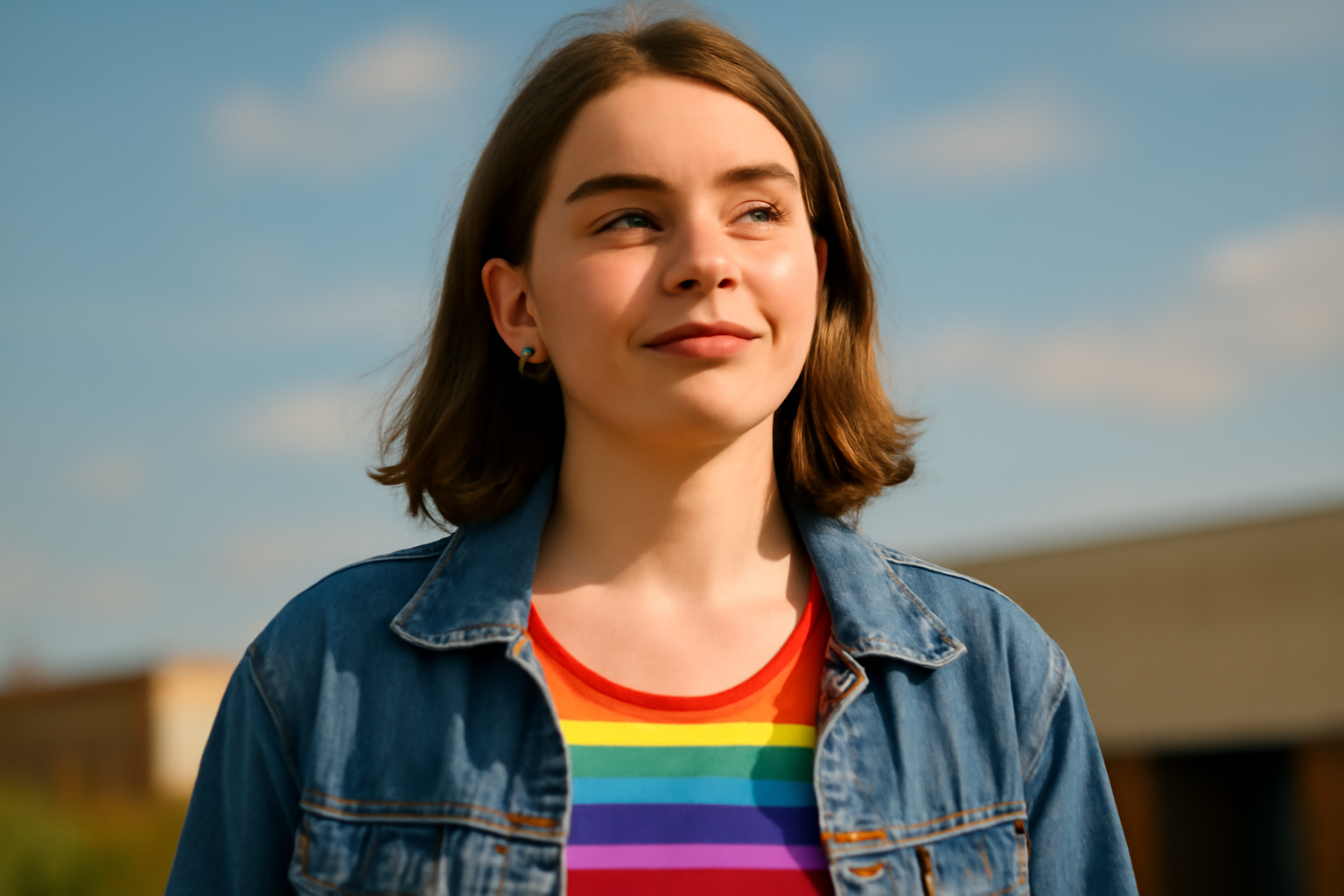
As the year 2000 dawned, signaling the turn of the millennium, many were filled with anticipation and hope. For Byron, the protagonist in the BBC's compelling adaptation of Paris Lees' memoir What It Feels Like for a Girl, it was the start of an entirely new journey.
We are introduced to Ellis Howard, a fresh face in acting, who brilliantly portrays Byron—a 15-year-old queer youth navigating life in the working-class environment of Hucknall, Nottinghamshire. On New Year’s Eve, while the world revels in celebration, Byron, still identifying as a boy, finds himself alone, absorbed in a game of Snake on his Nokia phone. This is the setting of What It Feels Like for a Girl, where nostalgic tunes like Sugababes’ “Overload” play alongside the slow-loading images of early internet chatrooms.
Byron's Struggle with Identity
Byron feels out of place in a world that expects conformity. His father, played by Michael Socha, struggles to understand his child, lamenting over Byron being a "soft lad." Byron’s declaration of being a girl as a child was met with harsh reprimand. His mother, though physically absent, leaves a void, while his grandmother, though a source of comfort, holds outdated views. Watching TV together, she questions why a same-sex couple cannot marry someone of the opposite gender. Byron is frequently subjected to bullying, leaving him physically and emotionally scarred by derogatory taunts.

A Life-Altering Encounter
Byron's life takes a significant turn following a chance meeting in a rundown public restroom. Engaging in risky encounters, Byron negotiates with older men for money, exhibiting a mix of youthful naivety and street-savvy. Byron's life becomes entwined with Max, a 20-year-old who initially appears as a romantic interest but soon shifts to exploitative, becoming his pimp. With Max's sudden disappearance, Byron is drawn to the city's vibrant chaos, searching for answers.
There, Byron encounters the "Fallen Divas," a dynamic group of trans and queer individuals living on the edge. Hazy days filled with substances, drama, and fervor become Byron’s new reality. This newfound family offers a sense of belonging, though it comes with its own challenges. Sasha, portrayed by Hannah Jones, embodies defiance, confronting prejudice head-on. Yet, this camaraderie also introduces Byron to Liam, a more dangerous figure, coercing them into illicit activities that steer Byron's path into yet another direction.

Embracing Identity and Navigating Challenges
Throughout the eight-part series, Byron gradually comes to terms with and accepts their transgender identity. However, What It Feels Like for a Girl surpasses a mere coming-out narrative. It resonates with anyone who has felt constrained by their origins, seeking community and encountering life-changing relationships. The drama explores themes of abuse, manipulation, and fractured family dynamics, bridging the LGBTQ+ community with broader societal issues.
The BBC has set itself apart with this drama, breaking free from conventional LGBTQ+ storytelling norms. Recent offerings like Mr Loverman and Lost Boys and Fairies have similarly pushed boundaries, yet What It Feels Like for a Girl remains exceptional. The trans characters are portrayed with authenticity and complexity, challenging viewers beyond stereotypical representations.

A Raw and Uncompromising Narrative
The adaptation benefits from Paris Lees’ rich autobiographical material, seamlessly translated into the screen with the Midlands dialect intact. Ellis Howard delivers a fearless performance, capturing the volatile essence of Byron—both arrogant and humorously sharp-tongued. Despite the exploitative and dangerous situations Byron faces, the narrative focuses on their growth and resilience.
What It Feels Like for a Girl is unapologetically raw and often uncomfortable, with scenes that challenge and provoke. One particularly intense moment involves Byron sharing their naïve belief in love with a client, leading to a shocking act of violence. This discomfort is precisely what makes the drama a gripping and crucial watch, showcasing the urgent need for more bold storytelling in television.
Currently available to stream on BBC iPlayer, What It Feels Like for a Girl is set to air its first two episodes on BBC Three tonight. Join the conversation and share your thoughts while maintaining a respectful dialogue.
Related Posts
Triumphant Trans Woman Wins Legal Battle and Inspires Others to Stand Up for Their Rights
Breaking new ground: a landmark victory in transgender rights After battling in courtrooms and enduring endless challenges, Diana Portillo, a transgender woman, has secured a monumental victory in her decade-long fight against workplace discrimination. The result? Nearly $1 million awarded in a historic settlement. But this isn't just a win on paper—it represents a powerful precedent in combati [...]
Pride Month in Latin America: Protests and Demands for Equality
**Celebrating Pride and advocating LGBTQ+ rights in Latin America** Pride Month in Latin America was a lively mix where celebration met activism. Communities united, not just throwing a party but making a stand—demanding equality and pushing governments toward better protection and rights recognition. Throughout Latin America, pride events erupted in marches and cultural displays, each with a c [...]
Transgender Erasure Actions Implemented by National Park Service
```html Trump administration's impact on national park service and transgender recognition The Trump administration made notable moves in undermining transgender representation, which included directing agencies like National Park Service not include "T" and "Q" when they refered “LGBTQ” in any official communication. This move seems part a broader plan by this administration aimed at reducin [...]